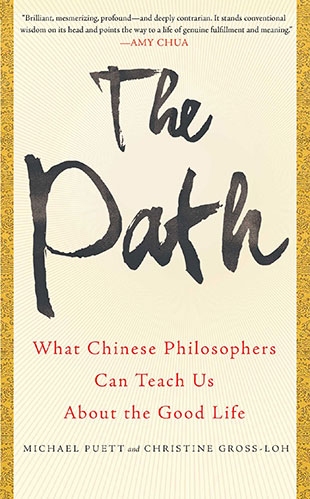"In [Chinese philosopher] Xunzi's tales of the invention of human civilization, he reminded us that human endeavors were about building on what is 'natural' and making it incomparably better. . . . Of course, human intervention can also have many dangerous ramifications. Xunzi's response, though, would not be to pull back from intervention but to encourage us to become conscious that we have created the world we live in and notice where we have made mistakes, so that we can improve upon them, intervene better, innovate better, create better. . . .
"Our longing for a natural world arises in discussions of the Amazonian rain forest. We are alarmed – with good reason – at the current destruction. But those concerns are often voiced as despair that we are destroying one of the last remaining natural parts of the Earth. In fact, archeological work has demonstrated conclusively that much of the Amazonian rain forest is itself a product of domestication by indigenous peoples. Preserving the rain forest as it is would not return it to a natural state; it would preserve a different type of human domestication. The debates over conservation of the rain forest are significant and have far-reaching implications, and they would be more productive if we took the question of what is 'natural' off the table.
"We've created the world we live in, and we can choose to move it in a different direction. Subjects such as the best way to preserve the Amazon, or whether or not to pursue cloning or genetically modified foods, are difficult to discuss wisely when they devolve into debates about what is natural versus artificial. These misguided debates prevent us from facing up to the real issues at hand. If we fetishize nature, we surrender our human power to transform the world, and fail to acknowledge that just as we have created problems in the world, just as often we have improved upon what exists in nature.
"If we do not see the positive aspects of human manipulation of the world, we tie our own hands and blind ourselves to the subtleties of issues such as environmental protection and stem cell research. We should simply ask: Are we doing these things well or not? If not, what improvements can we make?
"Just as there are those who romanticize the natural, there are also those who revere technology and think newer and bigger are always better. But just as nature is not something to blindly accept, neither is artifice. It is true that technological advances have led to many new inventions that make life easier. But Xunzi would say that both camps – those who romanticize technology and those who demonize it —misunderstand how we should approach artifice. Endless technological innovation isn't what matters; it's what we do with it and how we build on it in each particular situation.
"We have created an artificial, constructed world, one with immeasurably grave problems. But that does not mean that we should surrender our human power to transform it for the better. Instead, by understanding what we have done, we can change where we go from here."
